This course provides an introduction to the analysis of data (related to the CCE program) based on the langage Python. The following main modules are presented : Python basics, Numpy, Scipy, Pandas with focus on data i/o, data wrangling, data plotting, statistics, signal processing and map plotting. Specific exercises mainly focuing on wave data are proposed to develop the student's skills to use these aformentionned modules.
- Professor: Stéphane Abadie
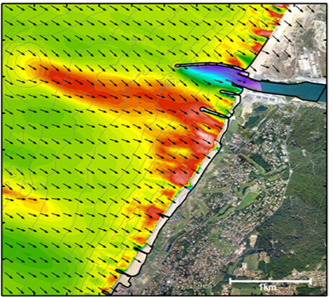
This course focuses on theoretical and practical aspects of the spectral approach for wave modelling, especially in the coastal area. Practical course are based on the use of the state-of-the-art, third generation, spectral wve model SWAN.
- Professor: Mathias Delpey
- Professor: Volker Röber
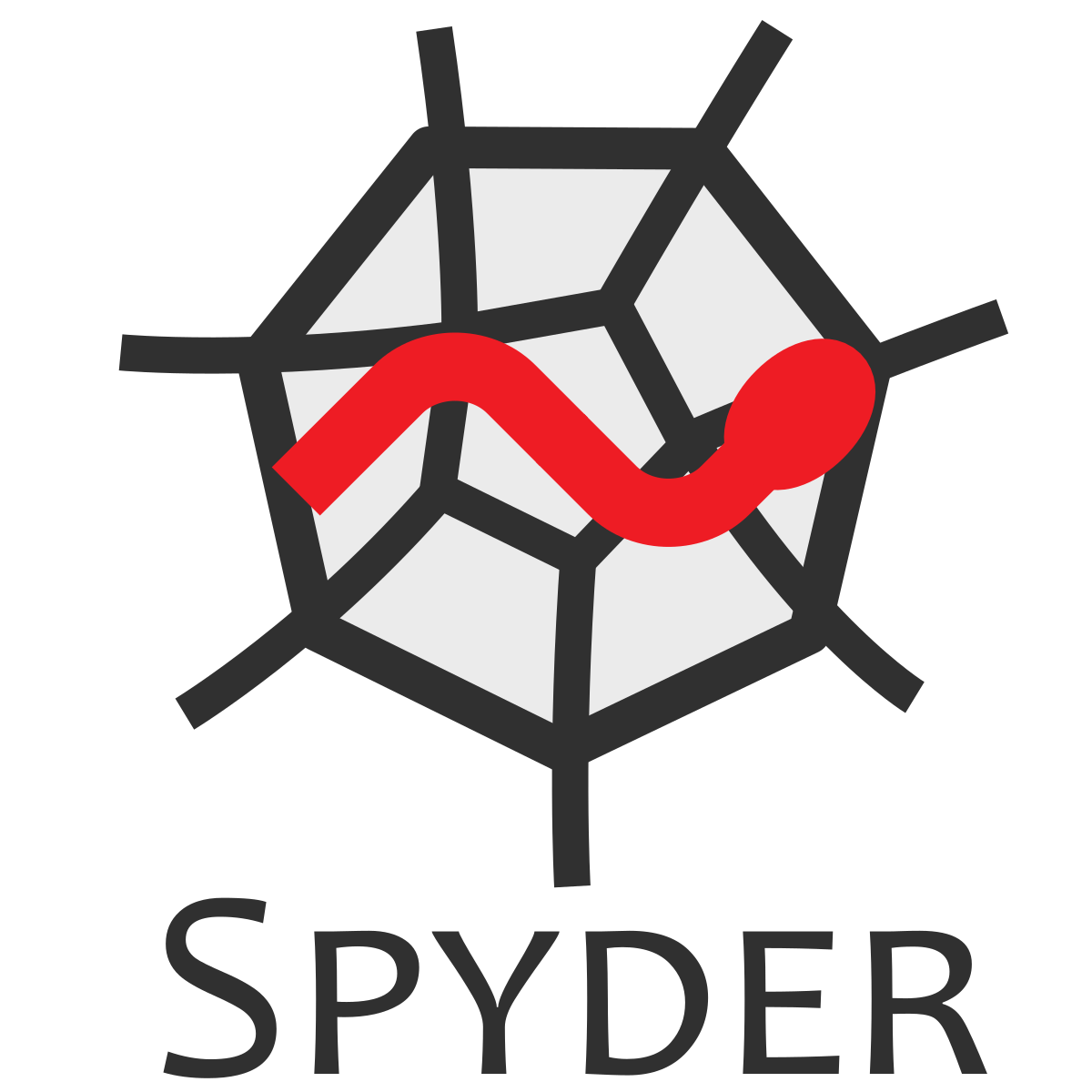
This course offers supplementary pedagological resources for the students to prepare for the CCE program. It mainly proposes materials on data processing with Python and Matlab, basic notions on Linux, the operating system which runs the laptops provided by the program and Latex, a software system for scientific document preparation.
- Professor: Stéphane Abadie
- Professor: Mathias Delpey
- Professor: Denis Morichon
- Professor: Jonas Pinault
- Professor: Volker Röber
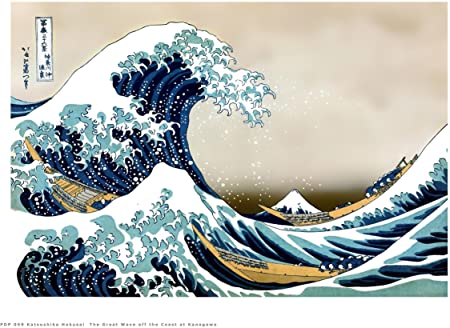
- Professor: Stéphane Abadie
- Professor: Jonas Pinault
- Professor: Volker Röber
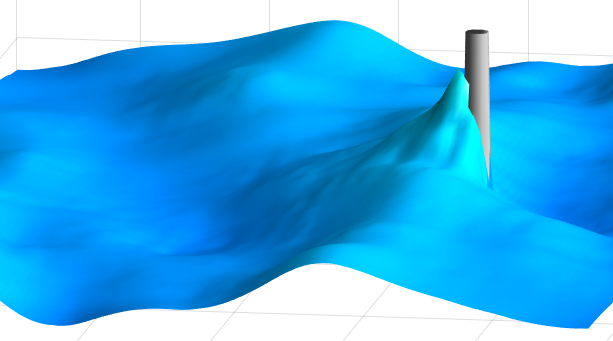
This class focuses on the theoretical framework and applications of phase-resolving numerical models such as commonly encountered in Boussinesq-type or non-hydrostatic models.
The course will cover the mathematical derivation of a popular set of Boussinesq-type equations, highlight the assumptions the equations are based on, and explain advantages and limitations of the approach.
We will further introduce the components necessary for a functional Boussinesq-type model such as boundary conditions, wavemaker, as well as data output, and finally go over typical benchmarking problems.
The TD sessions will mainly be devoted to the use of an in-house Boussinesq-type model with applications to practical problems such as nearshore wave transformation, runup/overtopping, and wave-driven current patterns.
Prerequisites: Fundamental understanding of fluid mechanics, knowledge of ODEs and PDEs, programming skills in Python and/or Matlab, and experience with data analysis methods.
- Professor: Stéphane Abadie
- Professor: Volker Röber
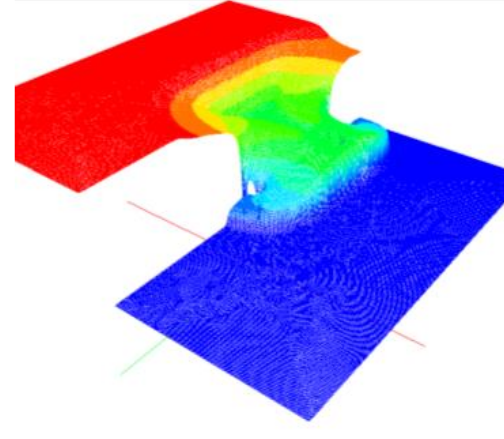
This is a course on shallow water equations : the
basic equations describing free surface flows in shallow waters
developped by Barré de Saint Venant. The course describes the type
of flows concerned, the developpement of the equations, the physics
involved and a few simple applications. The second part is devoted to
the Telemac2D numerical model, which simulates the shallow water
equations with finite elements. The course is composed of lectures
and practical works.
- Professor: Stéphane Abadie
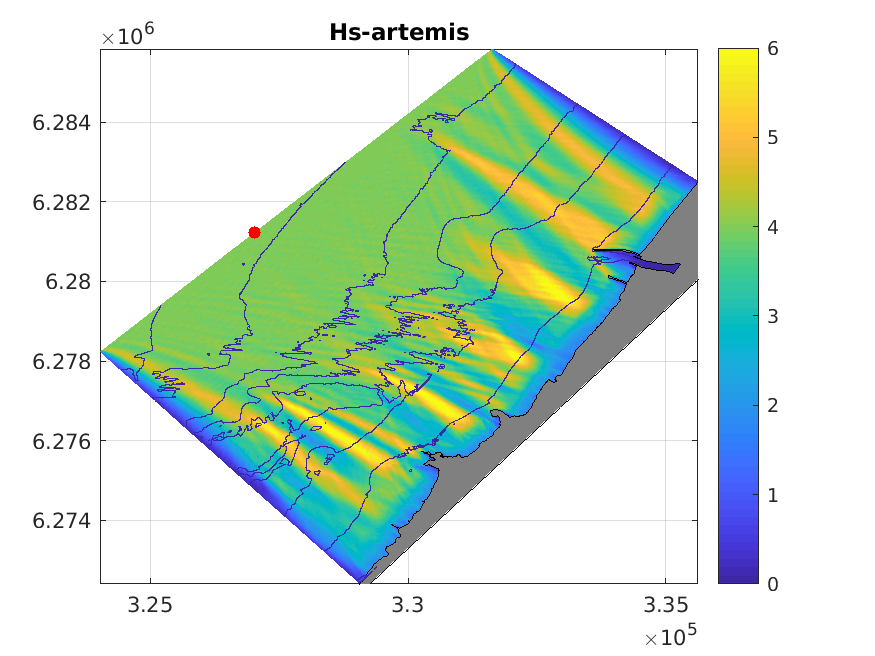
The disturbance inside harbour basins is one of the most relevant factors when engineers are to select construction sites and determine the harbour geometry in relation to predefined criteria for acceptable disturbance, ship movements, mooring arrangements and maintenance operations.
The
course will teach you the fundamentals of short and long period waves
interactions with coastal structures. The course will also help to
set up and analyze a wave agitation model for various applications
using the ARTEMIS-TELEMAC code. A special attention will be paid on
the prediction and the analysis of wave conditions in ports where
accurate assessment of wave impact is of crucial importance.
- Professor: Stéphane Abadie
- Professor: Denis Morichon
